Developing projects with the people of Uganda, preparing for the volunteers
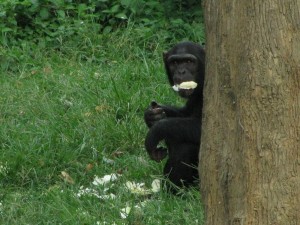 Yebo arrived in Uganda on 28th June, preparing, developing and increasing our aims as a charity. As a charity develops, we find that our projects and aims are increased, with more ideas and needs of the individual people we speak to and organisations that we are working with.
Yebo arrived in Uganda on 28th June, preparing, developing and increasing our aims as a charity. As a charity develops, we find that our projects and aims are increased, with more ideas and needs of the individual people we speak to and organisations that we are working with.
Being able to speak directly to those in the community helps us understand Ugandan culture more than we do, helping our projects develop in the right direction. The cultural differences between where we are based in the UK, to Uganda and also South Africa are different in each country. The English support systems that are in place, are often alien to those from other cultures, that for them do not fit into their communities, and of course the reverse.
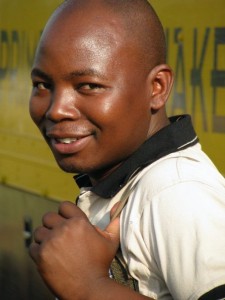 If we are to make a difference in the work that we are doing, we continually have to ask ourselves the questions “Are we going about this the right way?” and “Have we asked the local people we are trying to help how we can benefit them”
If we are to make a difference in the work that we are doing, we continually have to ask ourselves the questions “Are we going about this the right way?” and “Have we asked the local people we are trying to help how we can benefit them”
Waiting for our Yebo volunteers to arrive to help us with these challenges and the hands on work that we will be doing, is something that we would not be able to do without them. Our group in April allowed us to develop the projects to the next level, our group arriving on the 13th of July will be helping even further with development.
Many projects are being put in place for our volunteers here in Uganda, with new ones and ideas being expressed everyday. Yebo have been meeting and talking to many local people and organisations about the development of our work which is bringing us exciting challenges!.
Yebo met with the local newspaper who were interested in our work and the animal assisted therapy side of the 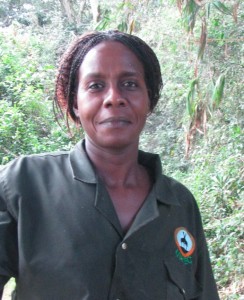 charity. An article will now be published in the Ugandan Entebbe paper/magazine. We are also meeting the primate handlers, keen to help us with the behaviour, stories and rescues of the chimpanzees under their care, allowing us to gain knowledge on this subject and how this will be used to support trauma in children. The observation we will be doing with the chimpanzees is exciting, and the chimpanzees, of course are also very keen to meet our volunteers!
charity. An article will now be published in the Ugandan Entebbe paper/magazine. We are also meeting the primate handlers, keen to help us with the behaviour, stories and rescues of the chimpanzees under their care, allowing us to gain knowledge on this subject and how this will be used to support trauma in children. The observation we will be doing with the chimpanzees is exciting, and the chimpanzees, of course are also very keen to meet our volunteers!
We have also met with Patrick, the director of Raising up hope orphanage where we will be working, supporting the children under his care. Many projects of sustainability are being discussed. Our volunteers are going to be working hands on with the children along with helping to develop the new ideas and future projects which we are all very excited about!
Our discussions have also been with the team who work with Ngamba island chimpanzee sanctuary where our volunteers will be visiting, learning and observing the chimps, their individual stories and the amazing recovery process that each 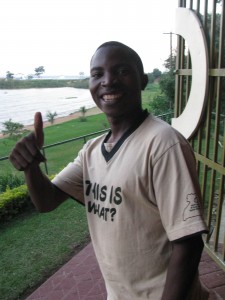 individual has been through. The staff here are extremely experienced, some working with chimpanzees for 30 years.
individual has been through. The staff here are extremely experienced, some working with chimpanzees for 30 years.
We have today met a man called Solomon, on a placement for 3 months at the wildlife sanctuary. Solomon, 24 is studying at Makerere university, on a 3 year course for Environmental management in the department of geography.
Solomon says he feels very passionately about conservation and has helped in the rehabilitation of a baby chimpanzee who had been rescued as an orphan. He tells of how the young chimpanzee was then released into the wild. The chimp was marked and tracked due to groups of chimpanzees often rejecting foreign chimpanzees unknown to them. After some time, the chimpanzee was successfully accepted. Solomon studies conservation relationships in Eco systems, saving energy, conflict resolution and 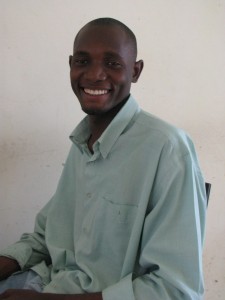 communication skills with the local community where he also works to advise the community how to help with conservation.
communication skills with the local community where he also works to advise the community how to help with conservation.
His passion lies in aquatic life where he would like to focus his career on river management, taking care of rivers, lakes and the wetlands, helping animals such as the Shoebill stork. He stated that in 1986 16% of Uganda was wetland, the home to many animals. Now in 2010 there is only 10%, and they are still losing this due to land claims.
Solomon describes nature as “The voiceless” and that we can fight for the right of the voiceless
He concludes by telling me
“Nature would never let me down”
By Roger Mallins, July 6, 2010 @ 1:42 pm
Excellent advanced and very detailed preparation.A positive start to a potentially successful trip for the volunteers.Look forward to further comments Lisa.